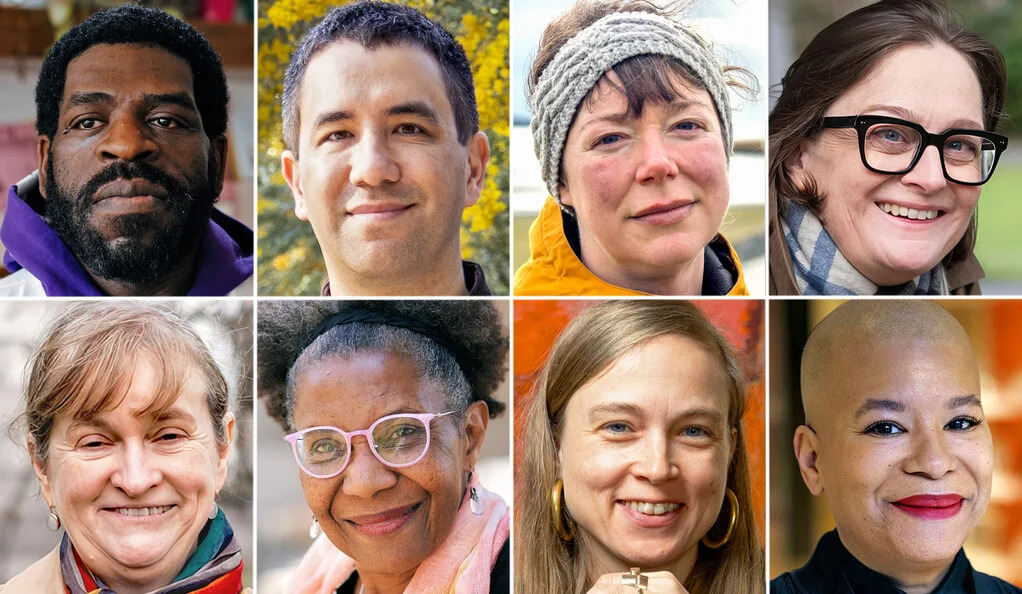Windham-Campbell Prize recognizes eight distinctive writers
The prize annually awards writers in four categories with prestige and monetary support.

Yale News
Yale’s Windham-Campbell Prize honored eight writers in four categories this year.
The winners of the Windham-Campbell Prize, a prestigious award presented annually to writers of fiction, nonfiction, poetry and drama, were formally announced last Tuesday. The prize, which includes monetary compensation of $175,000, intends to support writers in their creative craft.
This year’s awards, led by director Michael Kelleher and administered by the Beinecke Rare Book and Manuscript Library, recognized Christina Sharpe, Christopher Chen, Deirdre Madden, Hanif Abdurraqib, Jen Hadfield, Kathryn Scanlan, NourbeSe Philip and Sonya Kelly.
“I just think this […] is a really daring group of writers,” Kelleher said. “Some of them write about really difficult subjects. Some of them write in really inventive new forms, and they find new ways to use language to examine ideas and feelings and situations.”
According to Kelleher, the year-long prize selection process is fully anonymous and confidential. The Windham-Campbell prizes receive 30 nominations from Anglophone writers around the world. A panel of three judges per category read the writers’ works and narrow the field before submitting them to a final, nine-member selection committee.
Prize winners received the news with surprise.
“It’s really one of those very astonishing, delightful things,” NourbeSe Philip, one of the year’s two poetry winners, said.
Having been writing for over 40 years, the prize came from out of the blue, she told the News. She received an email from Michael Kelleher that requested she call him the following day. When she found out she was a recipient, she “just couldn’t believe it.”
She added that her anticipation of the prize money has reduced her anxiety in the face of a global, but especially Canadian, “affordability crisis” and granted her the freedom to turn down more projects.
Philip’s ideas, she said, come “in response to the external world.” She cited the pandemic, George Floyd and the ongoing war in Gaza as places where her poems may begin.
“I was working with the idea of history, juxtaposing the large-scale canvas of what I call uppercase history with lowercase histories of family and origin and stories,” Philips said.
Currently, she is working on a collection of essays that she plans to finish this August. She also hopes to revisit and rework poems from decades past.
“I’m contending with language,” Philip said. “Using language almost like the way a painter uses paint.”
The award was first issued in 2013 following a gift from Donald Windham in memory of his partner, Sandy Campbell. As members of a rich American literary scene, Windham and Campbell boasted close ties to Truman Capote and Tennessee Williams. Campbell, who had sizable family stocks, left the family fortune to Windham when he died. Windham subsequently donated the funds to the Beinecke in 2011.
“The idea behind the prize was always to provide writers with time to write,” Kelleher said. “It’s given to them out of love, and it’s given to them out of a desire to see them fulfill their ambitions.”
In an email to the News, nonfiction winner Christina Sharpe expressed relief that the award would free her “from a great deal of worry.”
She said that her work focuses on the aftermath of slavery and added that the prize would allow her to continue producing work that continues experimenting with form and imagines “other, not brutal, ways of living into possibility.”
For fiction winner Deirdre Madden, the prize “was a wonderful surprise” — one that gives her the chance to “[balance] the writing with the other demands of life.” Her work, which deals with the subjects of memory and time, has explored themes of painting and artwork, families and the Northern Irish Troubles.
Kelleher also emphasized the importance of writing prizes in a world of diminishing literary profitability. He explained that, unlike other competitive writing awards, the Windham-Campbell prizes seek to foster a sense of community and collaboration.
Prize winners will visit the University come fall during the annual Windham-Campbell Festival for the ceremony and a keynote address delivered by a notable writer. During the weeklong event, they will deliver readings and participate in conversations throughout the New Haven community.
According to Kelleher, next year’s nominations have already started coming in.
Previous prize recipients include Ling Ma, Tsitsi Dangarembga and Yiyun Li.







